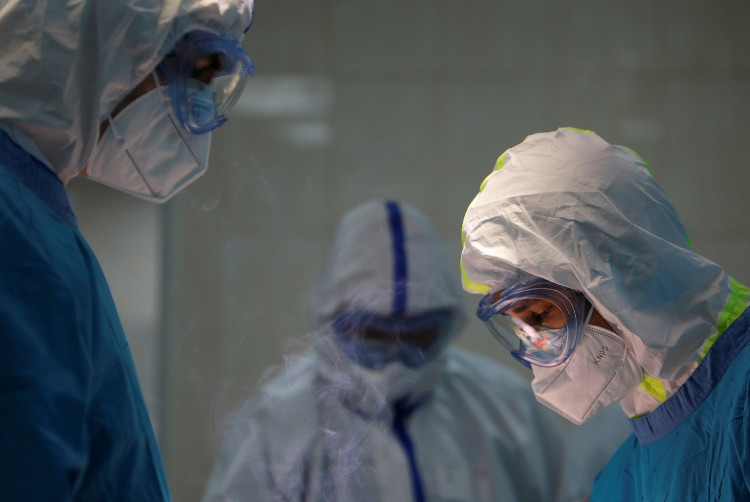Russia on Saturday became the second country after China to begin inoculating its general population with a COVID-19 vaccine still undergoing Phase 3 clinical trials.
Thousands of Russians classified as essential workers braved the bone-chilling weather Saturday to line-up at 70 Moscow clinics for their first shot of the controversial Russian candidate vaccine, "Gam-COVID-Vac," more popularly known as "Sputnik V." These people will have to return three weeks later for their second vaccination.
"Over the first five hours, 5,000 people signed up for the jab -- teachers, doctors, social workers -- those who are today risking their health and lives the most," said Moscow mayor Sergei Sobyanin on his personal website Friday.
The Ministry of Health said Sputnik V would first be made available to doctors and other medical workers, teachers, and social workers at the highest risk of exposure to the disease. It said those vaccinated with both doses should build-up their full immunity after 42 days.
On the other hand, people with specified underlying health conditions, pregnant women, and those with a respiratory illness for the past two weeks won't be vaccinated. The age for people receiving the shots is limited to those below 60.
The first 10 minutes before the vaccination goes to a general health check-up. The next 15 minutes are spent preparing the vaccine because it must be stored at a super cold -18°C (0°F). Those vaccinated will then be observed for about half an hour before being sent home.
Sputnik V is a viral two-vector vaccine based on the human adenovirus (a common cold virus) fused with the gene that encodes the spike protein of SARS-CoV-2 to stimulate an immune response. SARS-CoV-2, or severe acute respiratory syndrome coronavirus 2, is the virus that causes COVID-19.
The recombinant adenovirus type-5 (Ad5) and adenovirus type-26 (Ad26) are both used as vectors in Sputnik V. The Ad26 based vaccine is used on the first shot, and the Ad5 vaccine is used on the 21st day to boost response.
The liquid form of Sputnik V must be stored at -18°C, and a freeze-dried form is currently being tested that will allow the vaccine to be stored at the standard temperature of 2°C to 8°C (36°F to 46°F).
Western scientists remain concerned about the speed at which Russia has developed, approved, and began inoculations with Sputnik V before full clinical trials to test safety and efficacy have been completed.
"The scepticism around this comes from the fact that it's been developed very quickly and it appears to be put to the general population rather earlier than it would do if it had been developed, say in the UK," said Simon Clarke, an assistant professor at the University of Reading.
"Because they've used such small study groups, claiming a 95% efficacy at this stage may be a bit premature. It needs to be remembered they are not administering it to people over the age of 60, and really, they're the biggest at-risk group."
The start of vaccinations comes as Russia reported a record high of 28,782 new COVID-19 cases Saturday, including 7,993 in Moscow, the outbreak epicenter. Russia now has to contend with more than 2.4 million cases since the pandemic began.
Russians also have to mourn 508 deaths over the past 24 hours, which pushed the official national death toll to 42,684.






